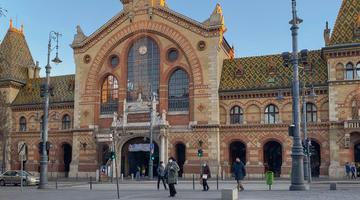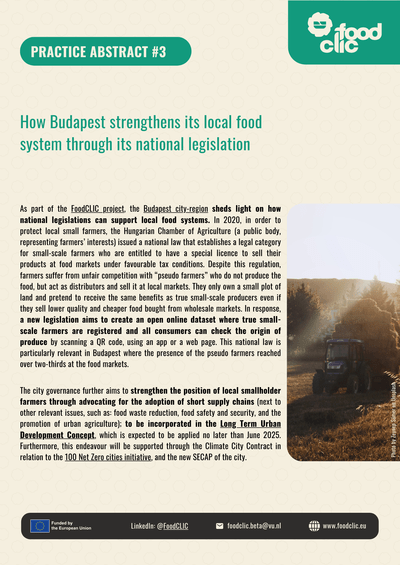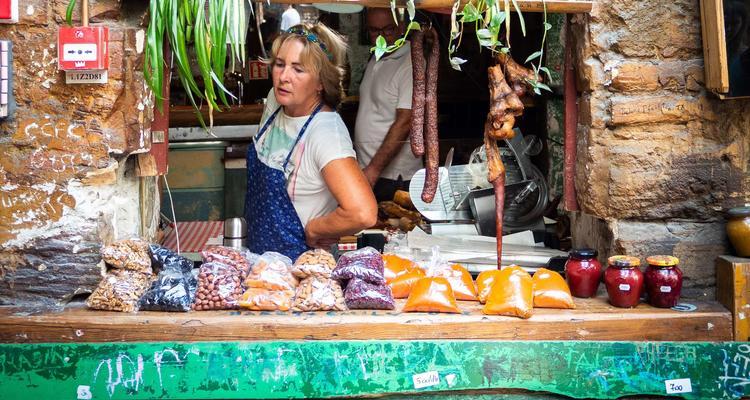
THE BUDAPEST CITY-REGION FOOD SYSTEM.
The Budapest city-region is characterised by a dual administrative system: The main governing body is the Municipality of the City of Budapest (Budapest Főváros Önkormányzata), but there are also 23 districts within the city with their own independent municipalities. This governmental constellation makes the development of food policies at city level more complex.
The capital’s food system relies on supplies from the whole country. Besides many farmer’s markets, the city operates several city market halls and community gardens as well as community buying groups. These mainly grassroots initiatives function as drivers for change.
As an important element of the urban food system, the Municipality is responsible for the school catering in some schools, allowing the city to effectively implement measures defined in the city’s food strategy.
Strengthening URban-Rural linkages.
With the help of FoodCLIC, the city plans to co-develop a food policy that is aligned with the EU Farm to Fork Strategy, transforming its food system into one that is inclusive, resilient, diverse and sustainable. With a view to this transition process, various stakeholders of the food system set themselves the following tasks and objectives:
- To innovate and improve existing social justice-oriented food initiatives; thereby increasing the access to healthy and sustainable diets for the most vulnerable groups;
- To develop a more climate-resilient food system;
- To increase the proportion of healthy and locally sourced food offered in public schools and on markets.
Measures undertaken to achieve these goals include the shortening of supply chains, reduction of food waste, promotion of urban agriculture, strengthening of sustainability in public catering and raising of public awareness. In this way, rural and urban areas can be brought closer together, reducing the vulnerability of each of these areas.
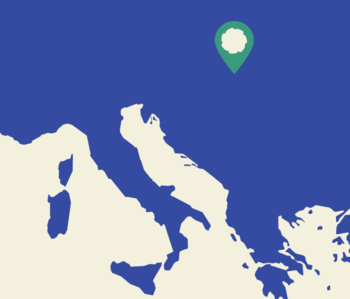
QUICK FACTS:
Budapest is the capital city of Hungary. The city has a population of more than 1,720,000 inhabitants.
PROJECT PARTNERS LOCATED IN THE BUDAPEST CITY-REGION:
The FVM Decree No 52/2010 (IV. 30.) regulation supports the production and sale of foodstuffs by small farmers, who can connect with residents and service providers (retailers, caterers, restaurants) through this portal.
The Government Decree 676/2020 (XXI. 28) defines special rules for public procurement procedures for public catering. A minimum of 60% of the food for public catering has to be procured through short supply chains, for instance.
The Regulation on the nutritional health requirements for public procurement defines energy and nutrient levels of food, the amount of raw food per portion offered to schoolchildren.
A nutrition guide for the general public has been produced by the Hungarian Dietetic Association, promoting key principles of healthy eating for adults and children.
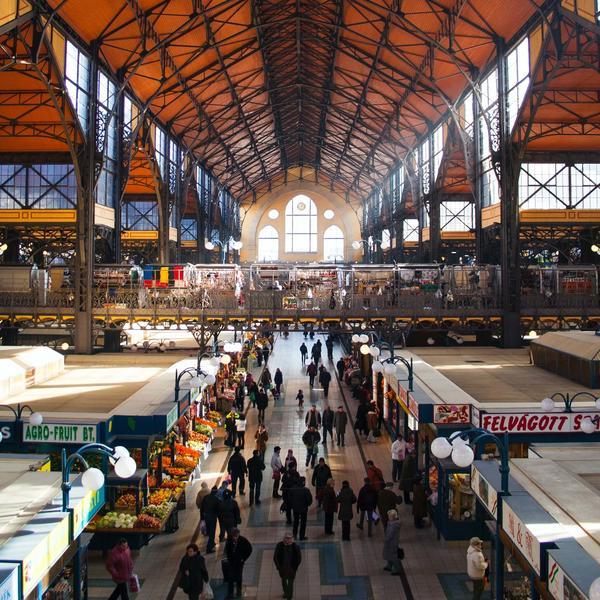
The Budapest city-region is preparing for the negative environmental and social impacts of climate change and other crises by ensuring that its residents have access to sustainable, healthy and affordable food through sustainable food chains, which in turn supports decarbonisation.
FOOD POLICY NETWORK
One of the main objectives of Budapest’s newly established Food Policy Network is to involve the actors of the city-region’s food sphere, and to provide a space for cooperation across sectors.
The Food Policy Network assists in the development of food policies and an integrated food strategy for the area. The Network supports the implementation of measures to create sustainable rural-urban food systems. This collaboration enables all parties involved to actively support the sharing of information, learn from good practices, and streamline awareness-raising activities.
Members of the Food Policy Network are representatives of the Ministry of Agriculture, the National Food Chain Safety Office, the National Centre for Public Health, district governments, higher education and research institutes, environmental and social NGOs, aid organisations, and the economic, agriculture, retail and catering sectors.
Related Blog Articles
Related resources
FOODCLIC. We are connecting people, food, policy & places.
FoodCLIC is a four-year project funded by the EU. The project runs from September 2022 to February 2027. The acronym FoodCLIC stands for 'integrated urban FOOD policies – developing sustainability Co-benefits, spatial Linkages, social Inclusion and sectoral Connections to transform food systems in city-regions
